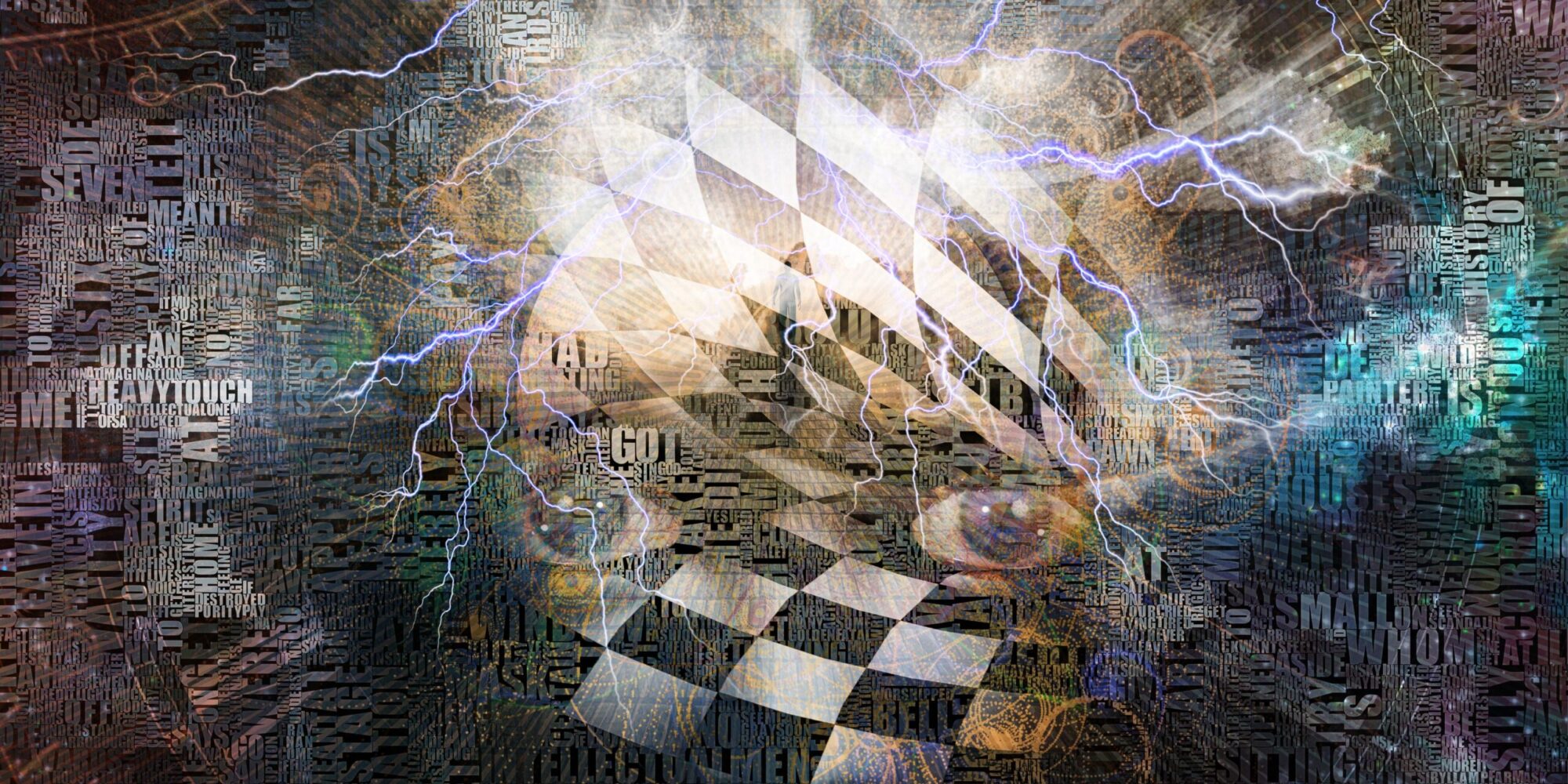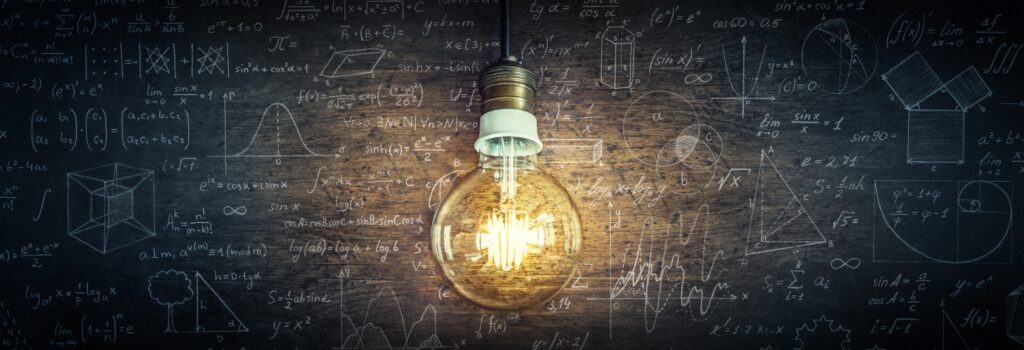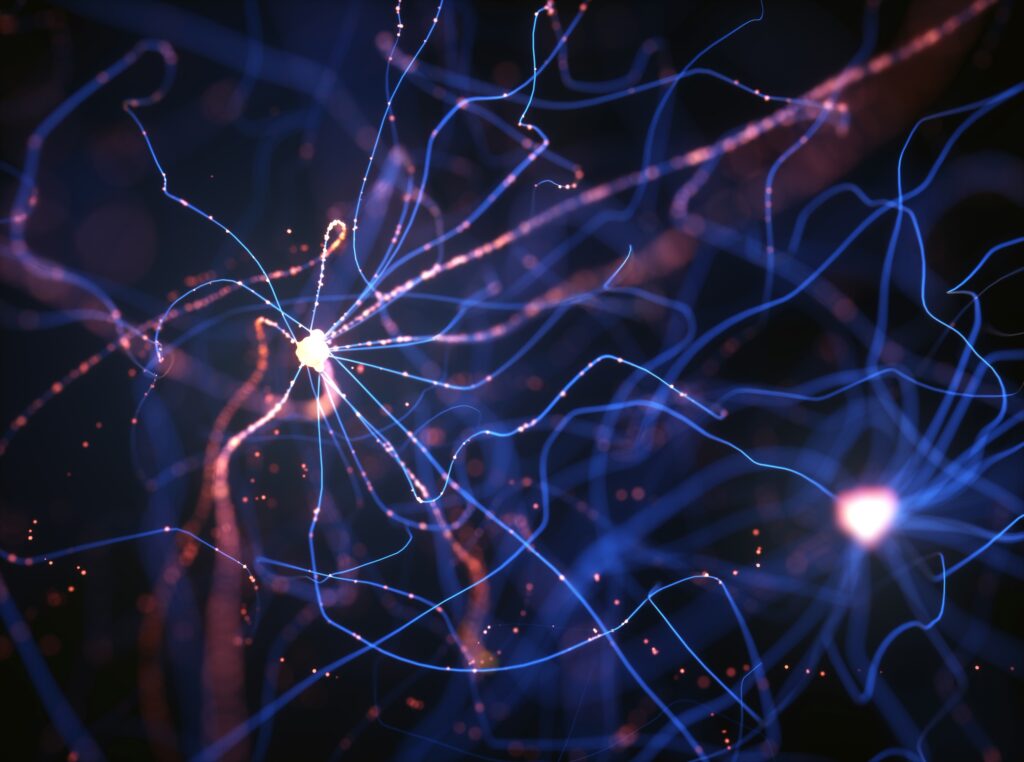The timeless mind: A thought experiment
Reading | Ontology | 2022-07-31

Mind cannot be reduced to matter. Therefore, instead of looking for the origin of mind, we must understand reality in semiotic terms: as a universal set of signifiers and meanings. This is the argument put forward by Massimilano Sorrentino and Daniela Panighetti in this essay.
In our previous two essays (see here and here), we have shown that there is reason to believe that mind may be older than is currently thought. More specifically, we outlined a scenario in which life on Earth is the work of a conscious author engaged in a creative process. From a third person perspective, this author’s first-person experience would be perceived as the activity of the Earth’s atmospheric system, corresponding in this scenario to the author’s ‘brain.’ If this is indeed the case, we must push the appearance of mind back to at least four billion years ago; in other words, to the time when life is currently thought to have first appeared on Earth.
The issue we would like to explore now actually precedes the question of the origin of the mind. What we would now like to ask is whether it is possible for mind to have had an origin at all. Such a question is naturally too complex to be addressed in just a few lines, so we will broach a simplified version of it, tackling the problem from an epistemological perspective. We therefore suggest posing the following question: is it possible to construct a well-formulated theory illustrating the way in which mind originated from matter at a certain point in the past?
Irrespective of how far back in time we might push the appearance of mind, we believe that it is not possible to develop a well-formulated theory of its actual origin under materialism. The ultimate reason for the inability to do so stems from the fact that mental contents emanate directly from our experience; conversely, we are unable to have direct experience of the hypothetical ontological substance known as matter, other than as a mental concept. The mind therefore holds an epistemological primacy as compared to matter: we have greater certainty of the existence of mind than we do of matter. Any attempt to explain the origin of mind taking matter as the starting point exhibits a divergence between the ontological plane and the epistemological one.
To delve deeper into this point, let us focus on the correspondence between mental and physical brain states. When we perceive a circular shape within our field of vision, a precise neural pattern is activated in the visual cortex. If that pattern is activated in a somewhat artificial manner, we nevertheless perceive a circular shape, regardless of whether a circular object is before us or not. Materialist theories of consciousness not only fail to explain the appearance of perceptual experience, they also do not explain why any particular brain state should be identical to the experience of perceiving a circular shape. In other words, they do not tell us anything about the nature of this puzzling neural code of perceptions. Conversely, when we refer to the genetic code, for example, we are well aware of the biochemistry responsible for the correspondence between base triplets and amino acids; and even if we were not familiar with it, we would nevertheless be able to research it rigorously, according to the scientific method. Under materialism, it is not possible to understand, in principle, how a theory of the origin of mind might be developed.
We wish to underline that the problem does not lie in the fact that, at present, we do not have a plausible theory of consciousness under materialism. Rather, the problem is that it does not appear possible to even imagine how such a theory might be formulated. Even if we had an understanding—down to the minutest physical detail—of the way in which the brain, the atmospheric system and other possibly conscious systems function, we would still be none the wiser as to why a system with certain physical characteristics should be endowed with consciousness. Moreover, we would remain equally ignorant as to why certain brain activation patterns correspond to whatever mental patterns they correspond to. An obstacle of this nature is not found in any other area of science, which should be no surprise: what we are trying to explain here—i.e., subjectivity—was excluded from scientific enquiry in the very delineation of the scientific method itself. In the scientific method, the subjective perception of heat is replaced by the objective height of a column of mercury. Therefore, when tackling the problem of consciousness in a world conceptualized as material and objective, it becomes impossible to recover the subject—i.e., an individual who experiences the sensation of heat. The problem, therefore, is a failure to remember that the subject has been excluded from the ontology for purely epistemological reasons—i.e., so as to formulate the scientific method.
We should note that such problems would not arise if the ontological and epistemological planes were not split, as in idealism. Indeed, in any idealism, the mind is assumed to be the only ontological substance, without an origin. In such an ontology, matter—the non-mental substance—would be replaced by the substance that makes up our very mental contents. In such a conceptualization, the subject cannot be excluded from the ontological set. Instead, we need to introduce a universal subject at the root of reality; a subject whose mental contents would be the ultimate reality of what we define as the physical world. In this conceptualization, when each of us refers to themselves by using the term ‘I’, ultimately it is the universal subject that is referring to itself.
With the introduction of such a universal subject, the mind-matter problem needs to be re-formulated in idealist terms: what is the relationship between the mental contents of such a universal subject—the objects of the so-called physical world, including the brain—and the private mental contents that belong to each of us? Obviously, we cannot expect to provide an answer that is certain, nor can we expect to give the matter an exhaustive treatment; we simply want to show how, under idealism, the problems that emerge appear easier to tackle than the unintelligible mind-matter problem.
Let us imagine that we built a computing machine equipped with a particle detector. The machine has output actuators whose parameters—voltage, frequency, etc.—encode the values of the physical properties of the detected particle, such as momentum, mass, charge, and so on. Let us also imagine that we can wear this machine as a backpack, so that the output actuators come in contact with the skin on our back. The output parameters of the machine are now perceivable as electrical stimulation of the skin. Let us further imagine that we spend enough time training ourselves to use this machine. Since we have built it, we know how the outputs are encoded. As such, through its ongoing use, we find it progressively easier to build a mental image of an event, starting from the machine’s response to the event.
In using the machine—which can be regarded as an appendage of our body and brain—we experience two types of mental content, which in semiotics are called ‘signified’ and ‘signifier.’ The signified pertains to the plane of content, while the signifier pertains to the plane of expression. In linguistics, they are the plane of words, as sequences of letters, and the plane of meaning, to which the sequences point. The code is what establishes the relationship between the two planes. For example, the genetic code establishes the rules of correspondence between certain base triplets (signifiers) and a specific amino acid (signified). Within a language, syntax describes the rules by which signifiers can be combined into sentences, while semantics describes the meaning of that which is signified. In the case illustrated above, the signifiers will be constituted by the level of output voltages generated by the machine, which we are able to experience as electric discharges on our body. That which is signified will, in turn, be the physical characteristics of the measured particle, as encoded by precise machine output patterns. As we continue to practice using this ‘prosthesis,’ the focus of our attention will gradually shift from signifiers to meanings—i.e., from felt electric discharges to the cognition of particle characteristics—in the same way that, as we learn a language and are able to read it with increasing ease, our attention tends to gradually shift from letters and words to meanings.
Now let us compare this scenario with the one proposed in our previous essay: the atmospheric system impacted by cosmic rays. We are not responsible for the creation of the atmospheric system. Rather, it spontaneously appeared as a self-organizing system at thermodynamic disequilibrium. What happens in idealist terms is this: a subset of the mental contents that constitute reality—namely, the subset associated with the earth’s atmospheric system—is organized so as to detect stimuli associated with the remaining mental contents, thereby producing output patterns according to a code known to the universal subject. We must explain the relationship between the atmospheric system and the private mental contents of the Earth by regarding the latter as mental contents of the universal mind as well. Among the whole ensemble of mental contents of which the universe is made, some elements, such as the lightning discharge patterns discussed in our previous essay, are signifiers, while others are signified.
This rationale can be equally applied to the emergence of the first nervous system on Earth; and it is possible to provide the same interpretation when it comes to our own mental contents. Nature is constituted by the mental contents of the universal subject, and our mental contents are a subset of those. They are the ‘signifieds’ that correspond to signifiers constituted by our brain’s discharge patterns, which in turn are mental contents of the universal subject, just like everything else.
We certainly cannot claim to have explained the relationship between mental contents and brain states; our reason for outlining the foregoing embryonic interpretation of such a relationship was simply to point out that, under idealism, the mind-matter problem is more tractable than under materialism. In other words, while in materialism we are faced with an unintelligible problem—given that consciousness is irreducible to matter—in idealism we are faced with more tractable problems, such as the problem of multiple minds (i.e., given that nothing other than the universal mind exists, why do there appear to be multiple minds?). We believe that, unlike the problems of materialism, this problem could be ascribed to language limitations. More specifically, we suggest that perception is related to the existence of a code that introduces a distinction between what things are (as symbols or signifiers) and what they represent (the ‘signifieds’ or meanings).
There are thus reasons to believe that the most suitable ontology to avoid the mind-matter issue is some form of idealism, such as the one we proposed.
Bibliography
- R. Searle, The Rediscovery of the Mind. Cambridge, Mass.: MIT Press, 1992
- Nagel and T. Nagel, Mind and Cosmos: Why the Materialist and NeoDarwinian Conception of Nature is Almost Certainly False. New York: OUP, 2012

Essentia Foundation communicates, in an accessible but rigorous manner, the latest results in science and philosophy that point to the mental nature of reality. We are committed to strict, academic-level curation of the material we publish.
Recently published
Reading
Essays
Seeing
Videos
Let us build the future of our culture together
Essentia Foundation is a registered non-profit committed to making its content as accessible as possible. Therefore, we depend on contributions from people like you to continue to do our work. There are many ways to contribute.















